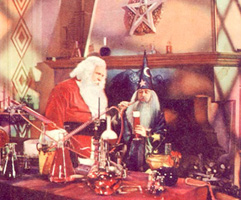It falls to The Tell to uncover this. We start with the origins of the word “jazz”, about which there has been a good amount of research. The earliest known references to jazz have nothing to do with music and appeared in West Coast sports pages. The earliest use in 1912 was discovered as late as 2003. In 1913, a journalist christened the “futurist word which has just joined the language” as meaning “something like life, vigor, energy, effervescence of spirit, joy, pep, magnetism, verve, virility ebulliency, courage, happiness–oh, what’s the use?–JAZZ.”
While there are a couple plausible alternatives, the most likely source of the word jazz is the slang word “jasm”, which dates from 1860 and precisely means energy, enthusiasm and drive. (an 1886 Harper’s Weekly includes the description: ‘Willin but hain’t no more jas’m than a dead cornstalk.’) The source of the word jasm is more murky. Some claim it is derives from the Mandingo “jasi” or Temne “yas”, but Daniel Cassidy argues that it is a Gaelic phrase “jass”, meaning heat and passion, and that this is a more plausible explanation given the word’s appearance in the relatively Irish Northeast and San Francisco. There is then a bit of a contest between various ethnicities to claim this “American” word, and Cassidy’s claims do seem aggressive at times, as when he claims “spiel” to derive from the Gaelic “speal” (satiric speech) while ignoring the German “spiel” (to play).
Cassidy also does not explain why “gism”, which also referred to spirit and energy, appeared in print in 1842, 18 years before “jasm”. Someone with more expertise in Linguistics might be able to better say how often an ɪ (soft “i”) mutates to an æ (hard “a”), but I would guess that it’s not common — and this suggests that multiple origins may have converged over time. Some think jism ultimately derives from the Latin “jacere” (to throw, as in “Alea Jacta Est!”). This is unlikely unless intermediate forms can be shown. Some refer to the English “chissom” (to bud, germinate). This sounds promising but there are few online references to this eighteenth century term. Others have noted the Ki-Kongo”dinza” (life force). This seems like a stretch linguistically, and I have no idea how prolific the Ki-Kongo were relative to all African tribes, nor how many African words there were that meant something like energy from which one which one could purposively choose those that sounded vaguely like jism or jasm.
My idea was that gism/jism derived from the German “geist” (spirit, energy) via “gist”. Sadly gist turns out to be a thematically unrelated phrase of French lineage. Ultimately, the origin doesn’t matter especially since the word is not a vibrant part of “our” culture, but maybe if someone cared they could employ more probabilistic etymology.

 Recently while checking out IMDB’s list of the worst 100 movies of all time, I came across
Recently while checking out IMDB’s list of the worst 100 movies of all time, I came across